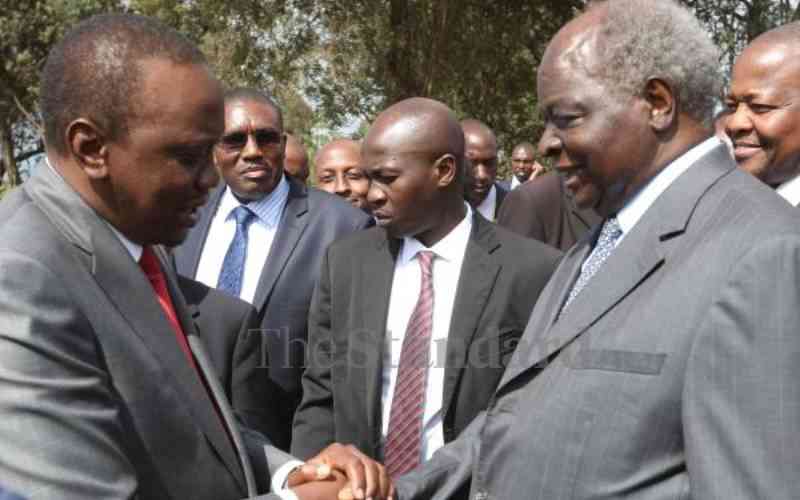
The formation of Cabinet by President Uhuru Kenyatta in his first and second terms relied on the intentions, paradigms, and philosophies that guided the promulgation of the 2010 Constitution.
Kenya's fourth president, having worked in the private and public sectors, was very aware of the threat of politically-exposed persons in the Executive.
In fact, some of President Kenyatta's leadership philosophies were borrowed from President Mwai Kibaki. Kibaki leveraged the technical knowledge and expertise of successful leaders in the private sector to run key government ministries, State agencies, governmental departments, and policy-driven committees.
Facts First
Unlock bold, fearless reporting, exclusive stories, investigations, and in-depth analysis with The Standard INSiDER subscription.
Already have an account? Login
 The Standard Group Plc is a multi-media organization with investments in media
platforms spanning newspaper print
operations, television, radio broadcasting, digital and online services. The
Standard Group is recognized as a
leading multi-media house in Kenya with a key influence in matters of national
and international interest.
The Standard Group Plc is a multi-media organization with investments in media
platforms spanning newspaper print
operations, television, radio broadcasting, digital and online services. The
Standard Group is recognized as a
leading multi-media house in Kenya with a key influence in matters of national
and international interest.

